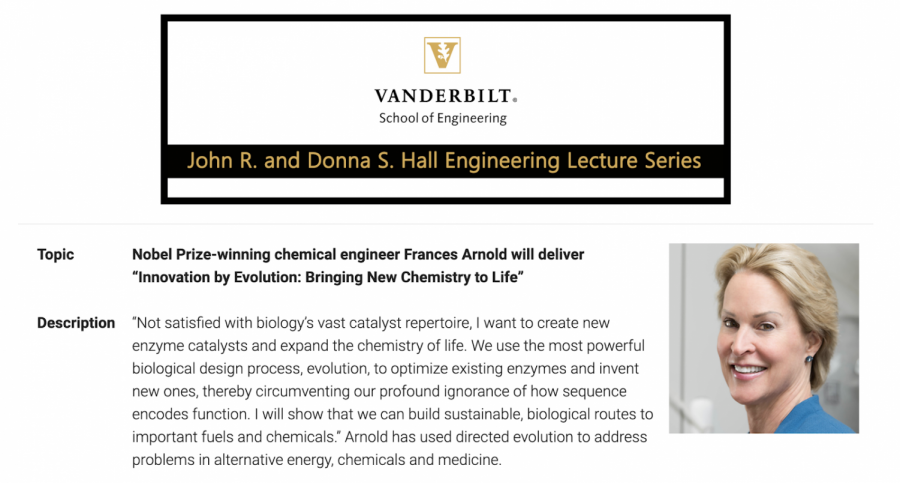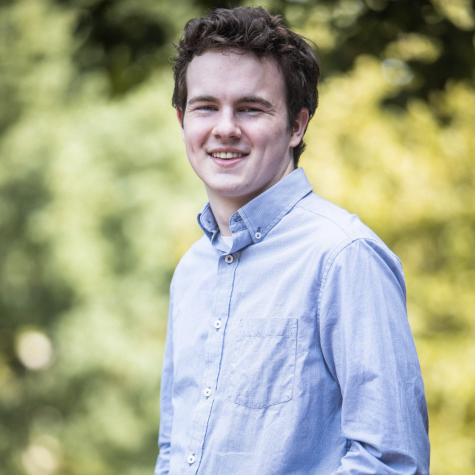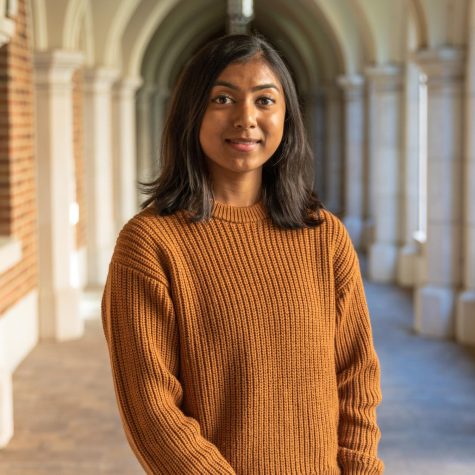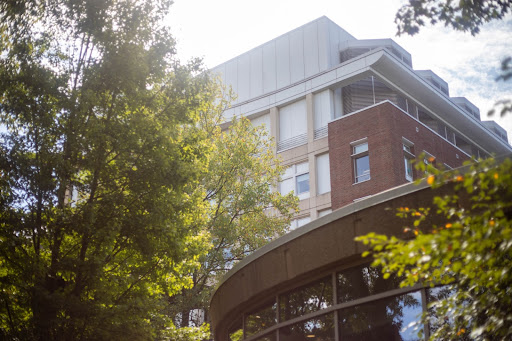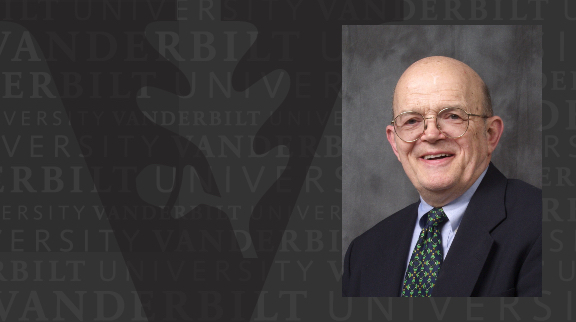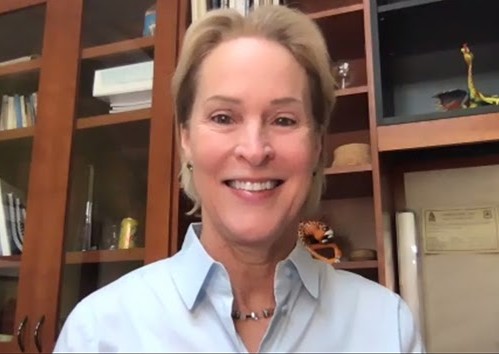On Sept. 15, Dr. Frances Arnold, a Nobel Laureate in Chemistry and the Linus Pauling Professor of Chemical Engineering at California Institute of Technology (Caltech), gave the fall John R. and Donna S. Hall Engineering Lecture to over 700 participants over Zoom.
Her lecture, titled “Innovation by Evolution: bringing new chemistry to life,” showcased the principles of directed evolution and examples of how the technology has and will continue to revolutionize the field of synthetic chemistry and beyond.
In addition to her role as a professor at Caltech, Arnold is the co-founder of Provivi, Gevo and Aralez Bio, sits on the board of Illumina and Alphabet and appeared as herself on Big Bang Theory Season 12, Episode 18.
Arnold’s concept of directed evolution
Arnold received the 2018 Nobel Prize for Chemistry for her work developing the concept of directed evolution. Directed evolution steers existing enzymes and proteins to achieve a specified function. It allows for the modification of proteins to be useful in human applications per Arnold.
Arnold summarized the general concept of directed evolution during her lecture.
“Native enzymes are pretty good at doing their native job. That is what natural evolution has tuned it to do. You ask it to do something new, it is generally less enthusiastic about that,” she said, “but turn the crank- this algorithm of mutation and natural selection. You can push by taking the new mutations to a fitness peak, and this process works wonderfully well.”
Arnold said her interest in the mechanisms behind directed evolution came out of a desire to engineer proteins.
“These [enzymes] can take renewable resources, cheap abundant resources, and can convert them to living, breathing, moving, adapting, functional machines.” Arnold said, “these remarkable proteins that no human being can master or mimic.”
Applying directed evolution
The applications of directed evolution are diverse, ranging from safer insect control to enzyme pharmaceuticals and renewable aviation fuel per Arnold.
At a more foundational level, Dr. Jenny Kan, then a PhD student with Arnold, used directed evolution to create the first known enzyme that can bind silicon to carbon atom, potentially revolutionizing organic synthesis by decreasing our dependence on expensive trace metals that this reaction mechanism previously used per Arnold.
“I get a lot of credit for what many hundreds of research groups did with [directed evolution] this basic idea,” Arnold said.
“So now all the enzymes in your laundry detergent are made by directed evolution. After all, what self-respecting enzyme wants to work in your laundry machine at different temperatures, with surfactants and bleach, but the enzymes are now evolved to be very happy there,” Arnold said.
Another one of her students started Provivi, a company that employs the concept of directed evolution to sustainably protect crops, Arnold said.
According to Arnold’s lecture, Provivi utilizes the importance of pheromones in insect mating. To confuse male insects, female insect pheromones are artificially synthesized using directed evolution at a low cost and sprayed in the field. The males can no longer pinpoint the location of females, thus reducing the number of offspring in the next generation.
Yet another of her students worked to create renewable aviation fuel by employing directed evolution for sustainability. This work led to the founding of Gevo, a biofuel company.
“You use renewable resources like carbon dioxide and solar energy that get stored in the form of biomass. Instead of making ethanol, which the yeast do naturally, you can convince them to make isobutanol. It is a lovely fuel and a great precursor to aviation fuel,” Arnold said. “That is another success story on the fuel side.”
At the end of her lecture, Arnold expressed her enjoyment in working with graduate students because they are open-minded.
“It is such a pleasure to be able to work with enthusiastic, creative, young people who have not yet learned what cannot be done. A lot of people tell you what cannot be done but just close your ears. There are all sorts of things that remain to be done,” Arnold said.

